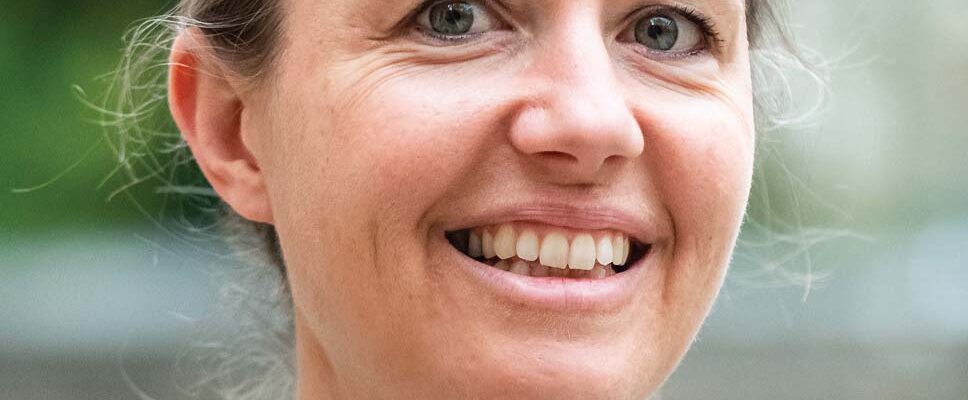Stéphanie Schaer, interministerial director of digital (photo: numerique.gouv.fr)
Stéphanie Schaer, general engineer of Mines, has been the interministerial director of digital since September 2022. The polytechnician was chief of staff to Elisabeth Borne at the Ministry of Labor, then her advisor at Matignon, before being appointed head of Dinum. In an interview a few days ago with the National Digital Council (CNNum), she “explains how free software participates in the implementation of DINUM’s strategies and reflects its commitment to the digital commons”. She underlines: “Our objective is to generalize the use of free software in all the tools used daily by state agents.”
“Collaborative digital suite”
Here are some excerpts from this interview, full reading of which is recommended:
“This initiative, called the “collaborative digital suite”, is an evolution of the “public official’s digital backpack” (SNAP) and aims to create and promote a set of efficient digital tools, based on free software. These products, some of which are already in service, bring together storage space, instant messaging (Tchap), videoconferencing tools (such as the State webinar), editing software, calculation, and many others. The open code of the software also allows us to make the tools interact more easily with each other, which meets the needs of agents in their daily use, for example launching a videoconference from their messaging system. »
“We pay great attention to the developer communities behind this software, with whom we communicate regularly in order to guarantee the highest quality tools. We will also collaborate with other countries, notably Germany, which shares the same vision to offer their public officials a sovereign digital working environment. We have already opted for the same instant messaging and it is possible that we will make similar choices for other components of this suite.
“Our challenge is finally to change the habits of agents so that they adopt these new tools, in particular facilitating collaborative uses. Tchap is an example: a professional instant messaging service for public officials, based on the open Matrix protocol, managed by DINUM and hosted by the Ministry of the Interior. Faced with the massive use of commercial messaging in personal and professional environments, getting Tchap adopted is a real challenge.”
Dialogue with the open source ecosystem
“By choosing to base the digital tools used by the State on free software bricks, DINUM becomes in a way an active member of these communities which maintain and develop these codes, thus participating in their sustainability. It is for this reason that the free software mission led by Bastien Guerry, in addition to disseminating this free software culture interministerially, is in charge of leading the free software council, a forum for dialogue between administrations and stakeholders in the free software sector. open source ecosystem: we want our strategy to benefit all parties involved.”
The rest of the interview focuses on digital commons. The head of Dinum gives as an example “the site demarches-simplifies.fr which recently crossed the threshold of 10 million files exchanged. This site is an essential common in the functioning of the State.”
“Our commitment to the digital commons is also embodied by the Citizen Initiatives Accelerator. Commons initiated by individuals or collectives become essential to conduct certain public policies. For example, Open Food Facts, an open food database, has become an essential pillar for the State in the implementation of public health policies such as the Nutri-score, and soon environmental labeling. Articulating public policies with these existing open resources represents a considerable saving of time and energy. The accelerator aims to identify these initiatives and offer them financial support and 360° support.”
“Ultimately, the free software and open databases that we use constitute for us digital commons to which we contribute and which serve all ministries. This approach avoids duplication of efforts to satisfy the same needs, thus promoting better cohesion and collaboration between the different entities.”
Read also
The State IT department in search of a breakthrough in public digital technology – March 10, 2023
A “free and digital common software” action plan for public service – February 8, 2023
The National Digital Council affirms its support for Libre – October 23, 2022
Europe wants to promote digital commons – June 23, 2022
